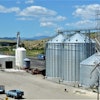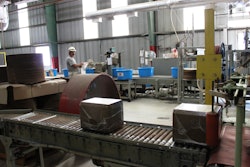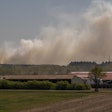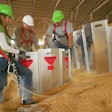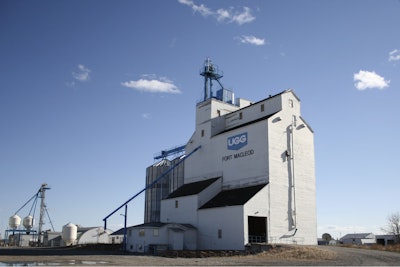
In a refreshing message about the Food Safety Modernization Act (FSMA), Dr. Gretchen Mosher, assistant professor of agricultural & biosystems engineering at Iowa State University, said that although the FSMA may seem overwhelming, you’re probably closer to complying with the rules than you think.
Speaking at a jam-packed educational session at GEAPS Exchange 2014 in Omaha, NE, Mosher stressed that breaking down the regulation into individual requirements can help put the massive bill into perspective. “It may seem overwhelming, but pieces are already in place,” Mosher said.
For example, FSMA requires a written plan to control all reasonable hazards. If your facility is HACCP certified, or certified by a third-party verification program like AFIA’s Safe Feed/Safe Food, you already meet this requirement.
莫舍戈夫指出,目前几个规定rning feed and grain facilities overlap the Food Safety Modernization Act. The Bioterrorism Act of 2002 requires a 24-hour recall time for records as requested, and the Sanitary Food Transportation Act of 2005 set forth sanitary transportation practices to be followed by shippers, carriers by motor vehicle or rail vehicle, receivers, and others engaged in food transport – like feed mills and grain facilities. Many OSHA regulations also cover FSMA’s worker safety requirements.
Of course, the FSMA does have some requirements unique unto itself, like registering your facility with FDA and providing information about the grain or feed processed there. But the session’s moderator, Dr. Charlie Hurburgh, professor, Iowa State University, noted that this is a simple process that should have been completed more than a year ago.
Perhaps the most frustrating hurdle the FSMA presents is the fact that unlike USDA’s GIPSA or APHIS inspectors, many FDA inspectors have little or no grain industry background. They’re used to inspecting food plants where you can “literally eat off of the floor,” Mosher said. “Your facility is never going to look like that, but cleanliness is an indicator of grain quality. Especially be careful to clean up pest’s droppings.”
What struck me about Mosher’s presentation was her positive attitude about the Food Safety Modernization Act. There’s no doubt the FSMA will change the way feed and grain facilities operate for decades to come, if not forever, but these changes are not as new or groundbreaking as one might think. By complying with pieces of various other regulations, you’re probably more prepared for an FDA inspection than you know.
Ultimately, complying with the FSMA comes down to proactive grain quality management, which you already care deeply about. The FSMA is simply a formalized layer of preventive controls you can and should be taking. In closing, Mosher expressed a sentiment I strongly agree with, to “think of the FSMA as an opportunity to improve your facility, and not just a set of requirements to meet.”


